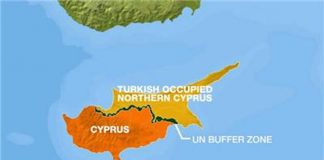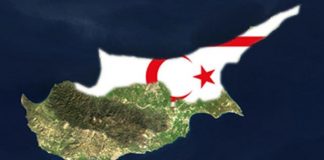Makarios
Obama, Kissinger and Nuland: Cyprus 1974 – Cyprus 2017
In 1974 Kissinger was able to prepare his Cyprus coup first by deceiving everybody about his real intentions, including the Greek dictator Ioannides, Archbishop Makarios and Soviet FM Gromyko (when he met both of them in Nicosia weeks before the coup), the British government and even his own President Richard Nixon, probably exploiting his serious troubles with Watergate.
A Comment On Kissinger And Cyprus: The Devil In The Detail
As yet another ‘High Noon’ looms over Cyprus, with the usual Western/NATO threats about this being the last chance for a solution, let us consider the rôle of Henry Kissinger, without whom it is highly unlikely that Turkey would have dared to invade and occupy Cyprus in the first place. Before we specify how he procrastinated and slithered to allow Turkey the space it needed to invade, we need some brief background to illustrate his obsession with Cyprus, and his delaying tactics following the Turkish invasion.
The Archbishop of Cyprus criticizes strongly the plans of President Anastasiades
In a very rare gesture, the Archbishop of Cyprus Chrysostomos, in his Christmas message, read in all churches, has criticized, in unusually harsh terms, the policy of President Anastasiades and the type of “solution” of the Cyprus conflict he wants to impose on the citizens of the Republic, bypassing the need for a referendum.
The Divisions of Cyprus, by Perry Anderson
Enlargement, widely regarded as the greatest single achievement of the European Union since the end of the Cold War, and occasion for more or less unqualified self-congratulation, has left one inconspicuous thorn in the palm of Brussels. The furthest east of all the EU’s new acquisitions, even if the most prosperous and democratic, has been a tribulation to its establishment, one that neither fits the uplifting narrative of the deliverance of captive nations from Communism, nor furthers the strategic aims of Union diplomacy, indeed impedes them.
Perry Anderson on Cyprus (and Obama in Athens)
One of the reasons, many observers believe, President Obama comes to Greece this week, is to press Athens to be “helpful” for a “solution” to the Cyprus problem. On the other hand the European Commission is also pressing hard both Nicosia and Athens to accept a solution, even worse than the one the Cypriot people had rejected back in 2004, by voting by an overwhelming majority NO in a referendum held in both the territories controlled by the Republic of Cyprus and those under the control of the Turkish Army, which invaded Cyprus in 1974 and does not seem in any way willing to leave the island, with or without an agreed solution.
Greece is not enough. They want Cyprus also. Why the EU...
By essentially denying the principle of popular sovereignty, it is also denying the principle of national sovereignty, the (relatively) independent character of the Greek state. Greece occupies a strategic place in the Eastern Mediterranean, on the route connecting Russia with the Mediterranean and Western Europe with the Middle East. Its independence was never completely tolerated by the British and then the American empires. Greeks were also suspected of leaning towards Russians, or at least this was the argument justifying the innumerable Western interventions in this country.





